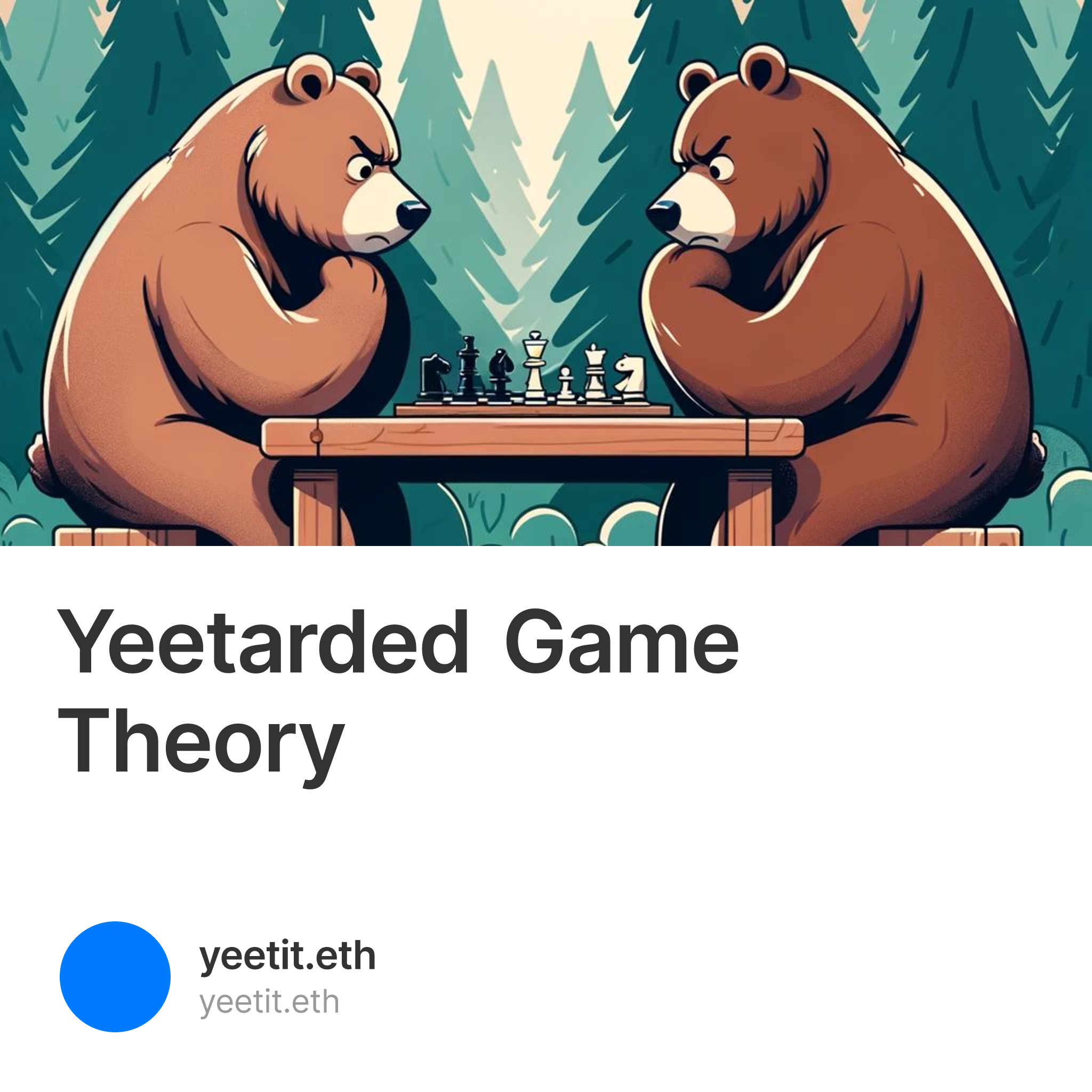In Game Theory, there are two high-level strategies:
-
Dominant strategy
-
Reactive strategy
A dominant strategy is one where the optimal move is one and the same; regardless of what other players do. A reactive strategy on the other hand, is one where the optimal move varies depending on what other players do.
In the context of Yeet, this gets very interesting as there exist both dominant and reactive strategies players can utilize because there are different ways of playing the game.
If you don’t know the rules of Yeet It, here is a quick recap; it is a game of the last bera standing.
-
Players yeet $BERA into the pool, and last yeet wins whole pool (a yeet is a deposit)
-
Players farm $YEET rewards by making yeets
-
$YEET can be staked to earn revenue
-
Revenue comes from a tax incurred on every yeet
A more in-depth explanation can be found in the previous article or in our docs.
The dominant strategy in Yeet It is simply to be the last person to make a yeet. This will take persistence, size, or both.

The big beras here may win, but fret not my young cub.
By making yeets, players earn $YEET. These tokens can be staked to earn a revenue share - and the source of revenue is future yeets. This is where the reactive strategies come in.

Even if you don’t plan on employing the dominant strategy (winning the prize pool by making the final yeet), there are other ways of playing where you can emerge a winner.
One example is making early yeets. Even if you know you won’t win the round and don’t plan to, you can still farm tokens by yeeting (the more you yeet, the more tokens you earn).
These tokens can be staked to earn a cut of future yeets - therefore if you think the big beras will yeet in size and prize pool will grow… why not try get a cut of it without risking all your capital?
Another example of a reactive strategy here could be just to buy the $YEET token as you see revenues going up, because you speculate that other yeetards will start yeeting more to earn more tokens, or to buy and stake to earn some revenue. This type of reactive strategy can be observed across DeFi and is not unique to Yeet It.
There are multiple ways of playing - and winning - with Yeet It. May the biggest yeetard win.
Disclaimer: we are not economists we are yeetarded beras who can’t even read.

